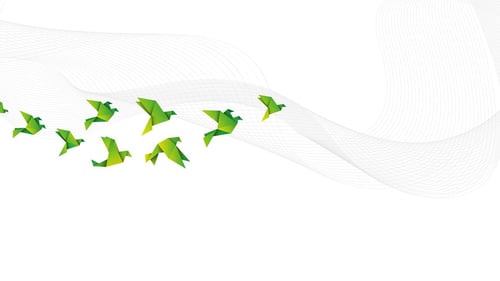Our European patent attorney Kim Finnilä recently returned from an interesting venture. He comes with a bag full of experience as a technical judge in a panel of the future Unified Patent Court (UPC). -The mock trial succeeded in illustrating some cultural and specific features of future pan European patent litigation, he tells us.
The agreement on the future UPC has now been ratified by seven Member States. The system is expected to be launched in 2016 or 2017.
The Rules of Procedure of the UPC are almost finalized. The purpose of the mock trial held in Paris on 2 May 2015 was to test certain processes that will be available before the UPC.
"I was asked to join the mock trial as a technical judge. The panel also included legally qualified judges from France and Germany," says Senior IP Advisor Kim Finnilä of the Berggren Group.

The case was based on an alleged patent infringement
The mock trial gathered an audience of about 300 IP specialists; in addition there were about 1400 on-line followers.
The case related to an improved abrasive product protected by a classical European patent. The plaintiff was an American company who had noticed an advertisement of a French company on the internet. The product description on the internet seemed to fall into the scope of the patent.
The plaintiff filed a claim for infringement with the local division in Paris and the defendant reacted by filing a counterclaim for revocation with his defence.
In order to secure evidence, the plaintiff continued by filing an application for preserving evidence as well as for carrying out an inspection of the defendant’s premises. In order to guarantee the availability of evidence, the plaintiff requested that the application would be handled without hearing the defendant.
"We illustrated how such an application is argued at an oral hearing, particularly in an ex parte situation."
The mock trial included two separate hearings; firstly the ex parte oral hearing on the application to preserve evidence and the related inspection; and secondly an oral hearing on provisional measures. The application for provisional measures was filed as the defendant announced a launch of the product on the internet.
The manuscript of the mock trial was set out in detail beforehand. However, the court panel still had to modify the outcome on the fly.
The simulation showed that the processes work – and also that surprising elements may turn up
What was the teaching of the hearings in view of the finalization of the Rules of Procedure? –This experience showed that the Rules of Procedure actually are quite functional, says Mr. Finnilä.
>"But, both in the mock trial, as well as in real life, the interface between national practice and the unified rules raised and will raise a number of culture bound interpretations."
Particularly in the oral hearing on the plaintiff’s application on provisional measures, the defendant raised strong objections on procedural issues that caused quite a stir in the proceedings.
"In patent cases unexpected situations will always arise irrespectively whether a case being tried in national courts or in the future unified court."
The duration of EPO proceedings will constitute a challenge
In patent infringement cases the same patent may still be in opposition proceedings before the European Patent Office.
"The goal is that a procedure before the instances of the UPC should be managed in about a year. At least at present, the EPO cannot manage such a tight schedule. However, will there be developments at the EPO for accelerating procedures is for the future to tell. –Today national courts often prefer to stay proceedings in situations like this," Mr. Finnilä states.
The UPC requires a number of experienced patent judges
According to Mr. Finnilä’s cautious estimate, the new court will at need at least 50 judges from the outset. Some of the posts will be realized case by case, thus allowing for part time judges.
The Member States may establish their own local divisions, or join in a regional division. The court panels will always be international; the planned local division in Finland will have one Finnish judge and two judges of other nationalities.
"A technical judge can be appointed to a case based on a request by the parties or by the discretion of the court.
There seems to be a great interest in the UPC."
"In an initial survey, about 1300 applicants expressed an interest in becoming a UPC judge," he notes.





